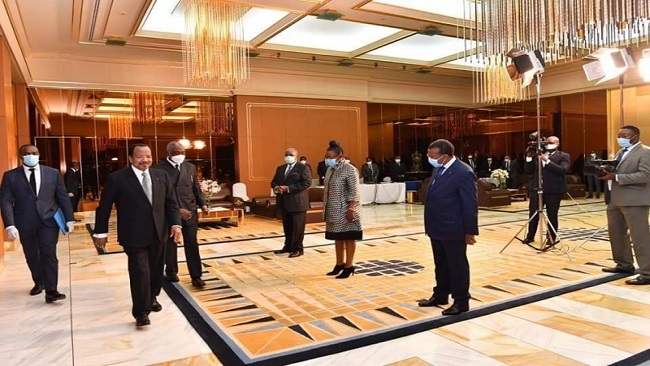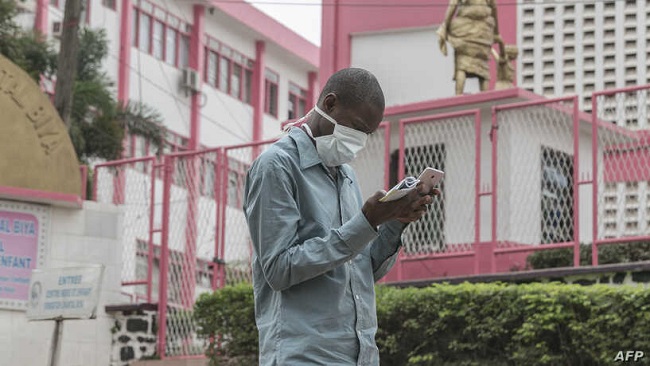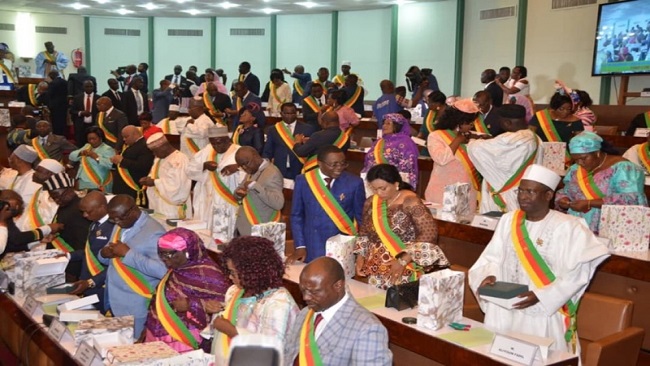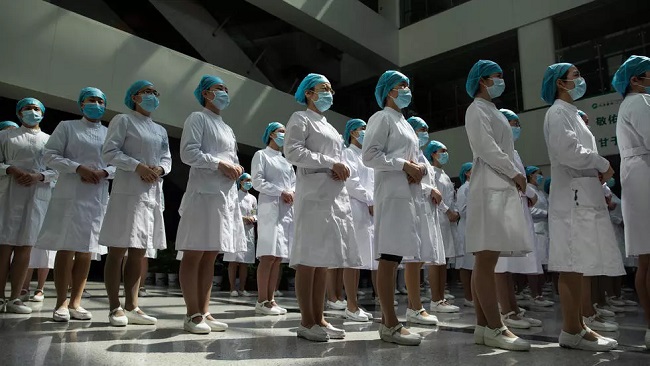3, June 2020
US embassy says Cameroon COVID-19 Cases Still on the Rise 0
The U.S. Embassy informs U.S. citizens that the number of confirmed COVID-19 cases in Cameroon continues to rise. According to Johns Hopkins University, there are 5,904 confirmed cases and 191 deaths as of June 1, 2020.
Although some restrictions have been lifted to alleviate economic hardship, the Cameroonian Ministry of Public Health reminded all residents on May 31 to redouble efforts to practice good hygiene, maintain physical distancing, only leave home when necessary, and always wear a mask in public.
Culled from the US Embassy Yaounde




























3, June 2020
COVID-19 aggravates Southern Cameroons Crisis 0
Bamenda, the capital of Cameroon’s northwest region, has been at the heart of a three-year conflict between Cameroon government troops and armed groups that are fighting to create a state they call Ambazonia.
Frequent gun battles, lockdowns, road blocks and now the COVID-19 pandemic have made life difficult for the majority English-speaking population. The Anglophone crisis and the coronavirus pandemic have two things in common: lockdowns, hospitalizations and an ever-increasing number of deaths.
The Anglophone crisis has been raging for four years with no end in sight
Scot, a resident in Bamenda said at least with the Anglophone crisis, one knows how to respect some rules like getting home early and avoiding no go areas.
“But for coronavirus, the risk is just so high. You might get into a public space and contract the disease,” Scot, who did not wish to give his second name for fear of reprisal, told DW.
“For the crisis, you know that there are some places that you are not supposed to go and certain things to do and not to do to avoid getting into trouble.”
One treatment center
The region is experiencing a surge in the number of COVID-19 cases. Health officials are warning that if people do not observe preventive measures — such as washing of hands, wearing masks and maintaining physical distance — the number of infections could rise further. Cameroon now has more than 6,300 confirmed cases of the coronavirus. Nearly 200 have lost their lives.
The northwest region’s only COVID-19 treatment center is housed in a government-run hospital. It has a pre-isolation ward, quarantine center, diagnostic laboratory and other facilities for people infected with the coronavirus. Bamenda, Cameroon’s third-largest city, has more than 500,000 inhabitants.
“Since we have more intense cases which are moderate or severe, the doctors see patients as often as need be,” Mercy Fundoh, head of the solidarity ward, told DW. “We try to do a clinical evaluation of these intense cases at least on a daily basis and sometimes twice a day.”
Patient care
As the health of the patients improves, they are transferred to the isolation center where they complete treatment and their number of days of isolation before they are retested.
According to Denis Same, the hospital director, a suspected case of COVID-19 is directed to the pre-isolation ward for investigation and sample collection. “If it is positive then you are taken to the solidarity ward or Azam Hotel meant for those who are asymptomatic, meaning that they do not have or have mild symptoms,” Same told DW.
Coronavirus, an extra burden
Before the coronavirus, Cameroon’s three-year Anglophone crisis had already made life difficult for people. Roadblocks, set up by separatist fighters, often block transport five days a week. They restrict movement between divisions to help prevent the spread of COVID-19.
“We are faced with two monsters, the Anglophone crisis and coronavirus as we try to avoid those who call the shots, military or separatists,” Thomas Mokum, another resident said.
“For coronavirus, somebody like myself without a job, I put food on the table with the menial things I do around. If you are to respect the social distancing, if you quarantine yourself, if you stay at home, if you do not go out to make money. This is how the two monsters affect my family.”
Battling the coronavirus while trying to stay alive in a conflict zone may result in the people of northwest Cameroon becoming simply too desperate to care about health and safety measures. That could make the grim situation even worse.
Culled from DW